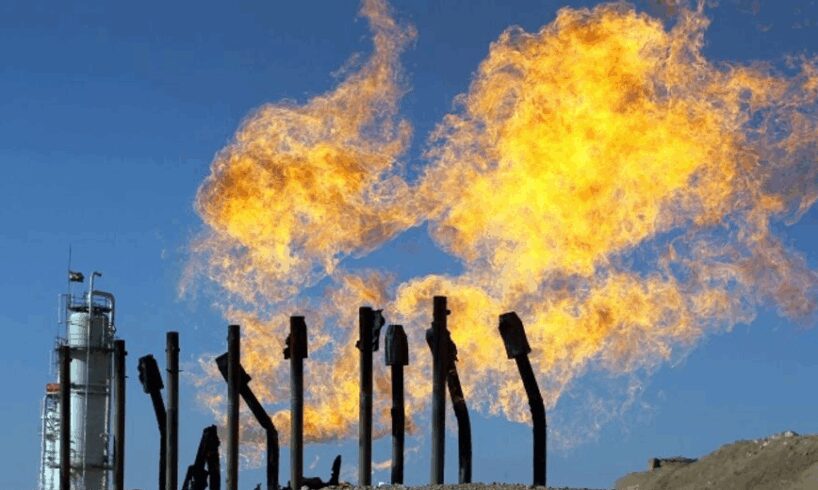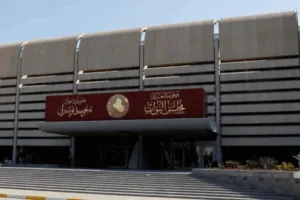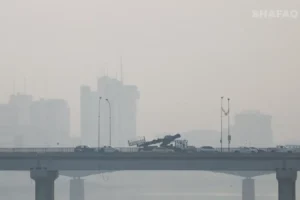
Shafaq News
Turkiye’s decision to formally terminate its decades-old oil pipeline
agreement with Iraq marks a pivotal shift in regional energy dynamics. Despite
multiple rounds of negotiations between Turkish and Iraqi officials to extend
the arrangement, President Recep Tayyip Erdogan announced the deal’s formal
end—effective July 27, 2026.
The move signals the closure of a longstanding framework and opens the
door to a redefined partnership shaped by unresolved legal, economic, and
political tensions involving Baghdad, Erbil, and Ankara.
A 50-Year Framework Nears Its End
The 1973 agreement established the legal basis for the Kirkuk–Ceyhan
crude oil pipeline, allowing Iraqi exports to flow through Turkish territory to
the Mediterranean. Ratified in 1975 and amended several times—in 1976, 1981,
1986, and most notably in 2010—the agreement underpinned Iraq’s northern export
strategy.
The 2010 protocol extended the deal by 15 years and introduced a
critical clause: commercial disputes would be resolved under French law via the
International Chamber of Commerce (ICC) in Paris. This provision later became
the cornerstone of Iraq’s legal challenge.
Between 2004 and 2015, the pipeline sustained more than 20 attacks in
Nineveh and Kirkuk, often targeting key pumping stations such as IT-1, IT-2,
Ain al-Jahsh, and Fishkhabour. The violence intensified during ISIS’s
territorial gains in 2014, disrupting exports for prolonged periods.
Pipeline as Power: Sovereignty and Leverage
For Baghdad, the pipeline was more than infrastructure—it was a matter
of sovereignty. The federal government insisted that only the State Oil
Marketing Organization (SOMO) was legally authorized to export crude oil. After
2014, independent exports by the Kurdistan Regional Government (KRG) were
repeatedly declared unconstitutional by Iraqi officials.
With federal flows disrupted by the conflict with ISIS, the KRG
increasingly depended on the Kirkuk–Ceyhan line between 2014 and 2017, paying
Turkish firms tens of millions of dollars annually in transit fees. But that
reliance came at a cost. Sabotage-induced shutdowns cost the Region hundreds of
millions in lost revenues—around $300 million between 2014 and 2015—worsening
fiscal pressures and deepening disputes with Baghdad.
Turkiye, meanwhile, leveraged the pipeline as a source of income and
geopolitical influence. As the transit state, Ankara profited from fees and
strengthened its position as a regional energy hub—connecting Iraq’s northern
resources to global markets while gaining influence over both Baghdad and
Erbil.
Arbitration and Agreement Breakdown
In 2014, Iraq filed for international arbitration, accusing Turkiye of
violating the 2010 protocol by facilitating unauthorized oil exports from the
KRG. Baghdad claimed this undermined national sovereignty and resulted in
economic losses through price manipulation and excess payments.
In March 2023, the ICC ruled in Iraq’s favor and ordered Turkiye to pay
$1.47 billion in damages. Although the ruling did not cancel Ankara’s contracts
with the KRG, it reaffirmed Baghdad’s exclusive authority to approve oil
exports. Turkiye subsequently suspended flows through the Kirkuk–Ceyhan
pipeline on March 25, 2023.
Invoking Article 9 of the 2010 amendment, which allows for termination
with one year’s notice, President Erdogan later confirmed the deal would expire
in 2026. Iraq’s Ministry of Oil stated that the Turkish decision aligned with
the agreement’s legal terms and noted that negotiations for a new framework
began in mid-2024.
Fiscal Strain and Political Pressure in Kurdistan
The suspension of exports had severe consequences for the Kurdistan
Region. Revenues collapsed, public sector wages were delayed, and international
oil companies operating in the Region were owed over $1.7 billion. The
resulting financial distress triggered public protests in cities like Erbil and
Al-Sulaymaniyah and exposed the Region’s continued vulnerability to
infrastructure it does not control.
To manage the fallout, Baghdad and the KRG reached a new interim deal in
July 2025. Kurdistan agreed to deliver 230,000 barrels per day to SOMO, while
Baghdad resumed budget transfers and approved a fixed $16-per-barrel transport
fee. While the deal provided short-term relief, it also reinforced the Region’s
structural dependence on decisions made outside its borders.
Inside the Kurdistan Region, the crisis has intensified political
pressure on the regional government. The halt in independent exports and the
resulting fiscal strain have sharpened internal criticism and revived debates
over energy strategy, transparency, and governance.
Pipeline Ready, Politics Frozen
Iraq’s North Oil Company confirmed that the Kirkuk–Ceyhan pipeline has
been fully repaired, and three rounds of pumping tests validated its
operational readiness. However, political disagreements have kept it offline.
Despite its technical functionality, the pipeline remains caught in a broader
diplomatic impasse.
Regional Energy Shifts and Strategic Diversification
With its northern exports suspended, Iraq has begun actively exploring
alternative corridors. Talks have resumed on reopening the Kirkuk–Baniyas line
through Syria, progress continues on the Basra–Aqaba route to Jordan, and
Baghdad is examining the potential revival of the old Tapline through Saudi
territory. These moves signal a deliberate effort to reduce dependence on the
Turkish route and regain strategic flexibility.
For Turkiye, the decision to end the 1973 deal is part of a broader
recalibration. Energy analyst Ali Abdullah noted that Ankara aims to break free
from “legacy constraints” and reshape its ties with Iraq on modern,
multidimensional terms—anchored in infrastructure, trade, and regional
influence.
Power, Leverage, and Legal Overhang
Economic expert Hassan Youssef described Turkiye’s move as a “strategic
lever.” According to Youssef, Ankara is seeking to widen the scope of
negotiations beyond oil into broader domains of cooperation, including
reconstruction contracts and commercial access.
He cautioned, however, that political disputes could delay a
comprehensive resolution and stressed the need for sustained strategic dialogue
to protect Iraq’s oil sector from prolonged uncertainty.
Corruption Allegations and Informal Networks
Further complicating the situation are longstanding allegations of
corruption. Investigative reports, including by Nordic Monitor, claim that
“Powertrans”—a Turkish firm allegedly connected to President Erdogan’s inner
circle—benefited from exclusive contracts to operate the pipeline on behalf of
the KRG. These allegations raise questions about past arrangements and the
informal networks that have influenced energy policy decisions.
Between Transition and Uncertainty
For Baghdad, the end of the 1973 pipeline agreement offers a chance to
break free from an outdated framework that limited its control over northern
exports. But without credible alternatives in place, the fiscal and logistical
impact remains significant.
Oil expert Hamza al-Jawahiri pointed out the economic rationale behind
Baghdad’s shifting priorities: exporting via Ceyhan costs over $6 per barrel,
while the southern route costs only $0.60—making the north unviable unless
terms are renegotiated.
For the Kurdistan Region, the termination renews fiscal pressure and
leaves the Region increasingly exposed to decisions made in Ankara and Baghdad.
The export halt since 2023 has deepened structural dependency and strained
political ties with the federal government.
As both Iraq and Turkiye prepare for a new phase of energy diplomacy,
the broader stakes extend beyond bilateral agreements. The evolving dynamic
will shape regional infrastructure investments, redraw energy alliances, and
test whether legal frameworks or political leverage will define the next era of
cooperation.
Written and edited by Shafaq News staff.





